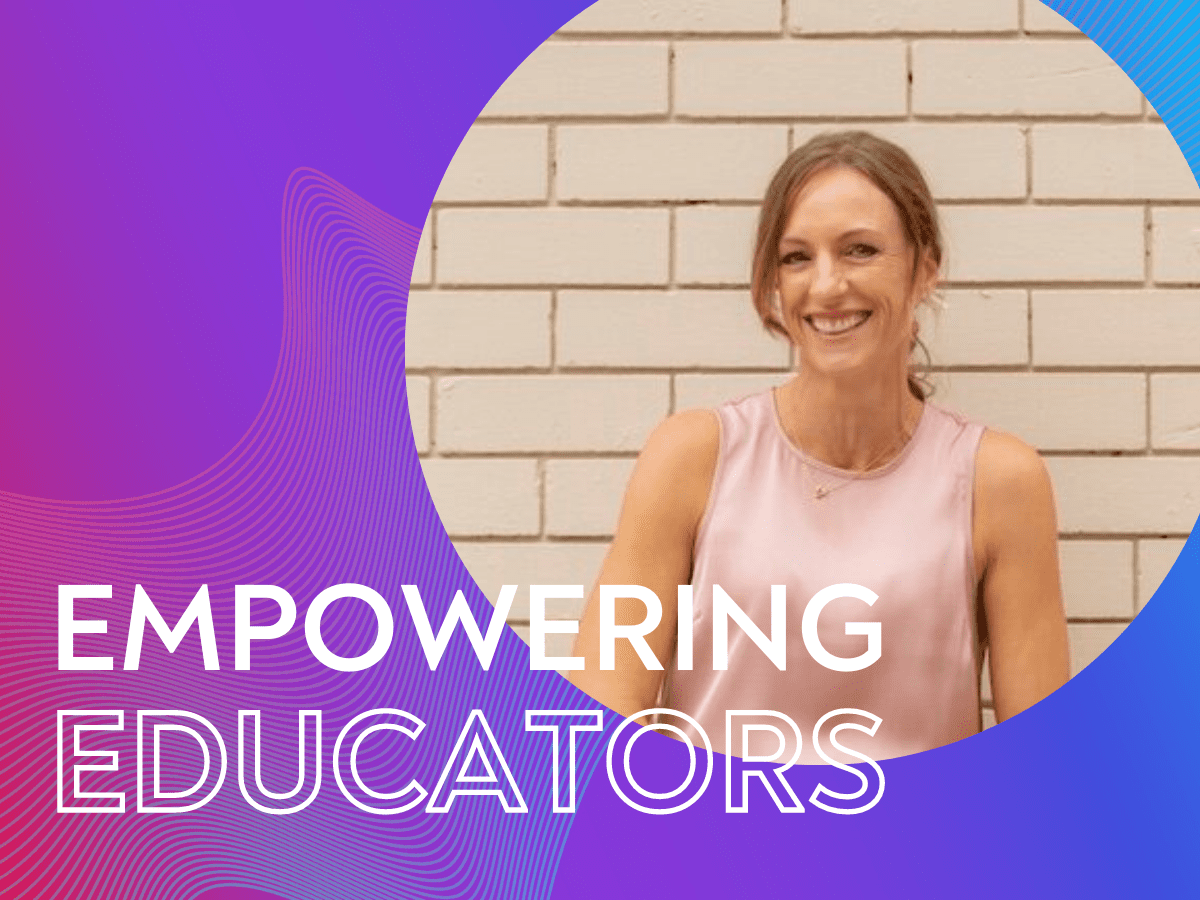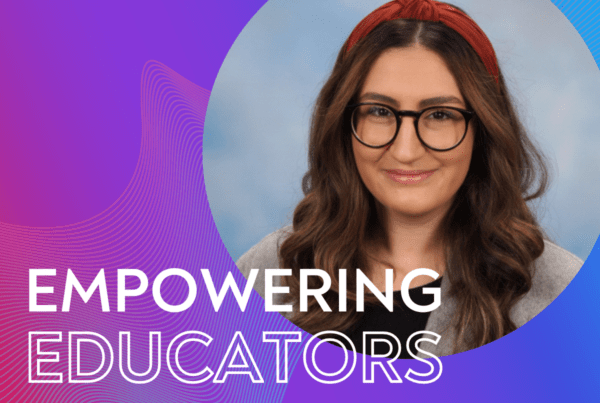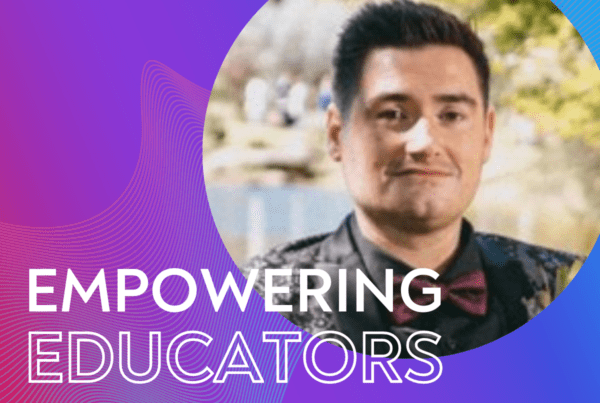Kate Hinton
Leopard Tree
In Empowering Educators, inspiring Aussie educators share how they build and nurture entrepreneurial mindsets in schools and classrooms. Here we ask Kate Hinton from Leopard Tree, about her inspiration and how she creates creating authentic and connected learning experiences.

Q1: Could you give us three words that describe your life as an educator?
Meaning, energy and agile.
Q2. What is the most important skill for young people to learn at school? What’s one way that educators (and/or caregivers) can explicitly build this skill?
I believe the most important skill for children to learn is self-awareness. This drives their ability to connect with self and others, identifies and powers their passions and strengths, and breeds positivity through mood, attitudes, and behaviours, which impact learning.
Educators could create environments that provide opportunities for insightful thinking and that are conducive to exploring possibilities with minimal limitations. A space where skills for critical thinking, intuition and collective efficacy are encouraged. Helping children to make mental maps through divergent thinking so they feel supported in speaking up, have a sense of belonging and see mistakes as a step towards success.
Q3: What’s one of the best learning experiences you’ve ever delivered (or seen being delivered)?
I am becoming more familiar with Hey Startup in their work with schools to support students to be changemakers. Students learn the entrepreneurial skillsets alongside the Australian Curriculum to enhance creativity, innovation and thinking. They have built capacity in their business to provide direct support for teachers and students through a model that scaffolds learning and gently releases them out into their own business. Students progress can be tracked and form evidence in their data collections. Schools have the opportunity to generate their own marketplace as a showcase, and in some cases are able to construct business processes for longevity in their community.
Q4. One thing all teachers and school leaders wish for is more time. Can you suggest one ‘productivity hack’ to save teachers time?
Teaching is a 24 hour gig and we need to identify our priorities, and then prioritise our priorities!
Being intentional with short-term ‘to do lists’ is a hack I use with teachers often. Eisenhower’s Matrix is excellent for highlighting what needs to be done now, needs planning for, can be outsourced/minimalised, or eliminated. If it’s not urgent but important, then this enables teachers to recognise that time should be spent here the most.
Also, a simple trick is put a sign on the door, ‘I am in deep work time’ and not to be disturbed.
If we aren’t switched on, then we tend to work in shallows instead of the deep more often which is less productive.
Q5: What’s one book, website or podcast you’d recommend to educators keen to build the entrepreneurial mindsets of their students?
I am always drawn to ‘Who Moved My Cheese?’ as it identifies growth and fixed mindsets and how these impact future opportunities for individuals and teams.
Explicit teaching of these mindsets along with aspects of Visible Learning by John Hattie, particularly the learning pit, can assist students to recognise that challenges and enable them to set goals, attempt new strategies, participate in divergent thinking, and to use critical and creative skills as taught through the General Capabilities.
Another oldie but a goodie is the late Ken Robinson’s ‘Finding your Element’. Nurturing all students to be equipped with self-awareness, naming their strengths and passions, and engaging in a growth mindset toward problem solving and new generating ideas, sets them up for success to follow pathways full of wild possibilities.
Meet this week’s Empowering Educator, Kate Hinton.
Kate is an educator energised through supporting people to be engaged, motivated and to thrive in their role. With two decades of teaching experience, Kate has collaborated with students, teachers, leadership and executive members on new initiatives, coaching, mentoring, providing feedback and supporting career progression and wellbeing. Kate has worked across international and local school communities of poverty, non-English speaking backgrounds, rural and indigenous communities. She advocates for the marginalised and disadvantaged, finding ways to influence change and create equitable and fair learning environments for all.
Kate’s studies in the neuroscience of leadership inform her focus on performance, positive relationships and building leadership capacity at any stage of a career. Kate is an engaging facilitator and presenter who empowers adults to reflect and take action with intention.
Like this? If you’d like to hear from more empowering educators, be sure to subscribe to Future Anything’s regular e-newsletter for more just like this. You can sign up here!





